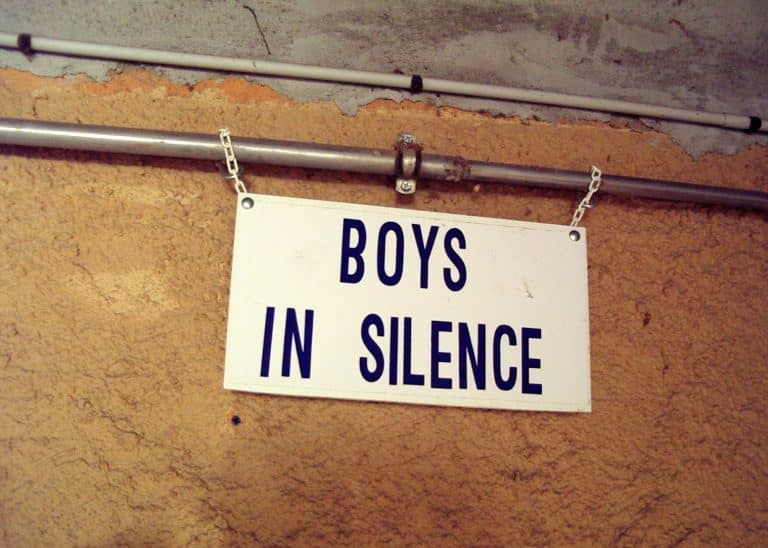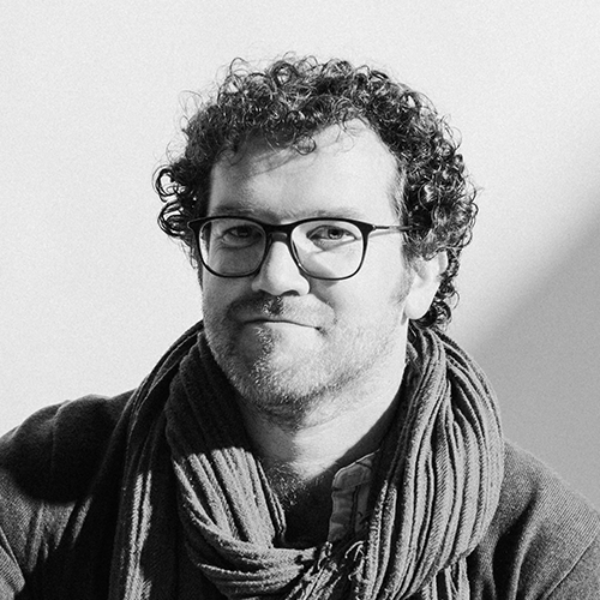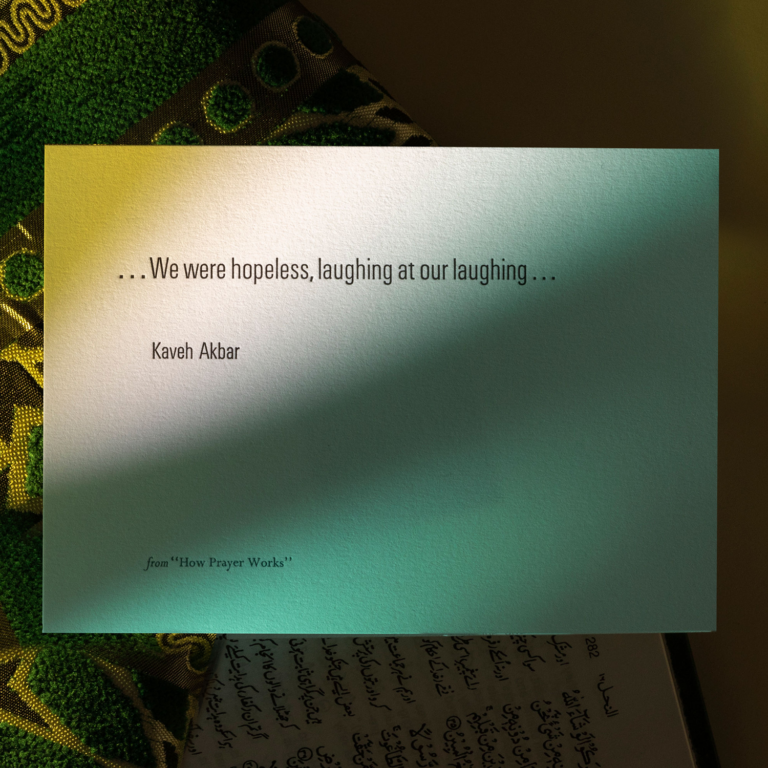
A sign hangs on the wall of a Taizé community in Burgundy, France. Image by Forteller/Flickr, Attribution-NonCommercial-Sharealike.
An Easter Sunday. A Sacred Echo. Solidarity in a Small Hell of Our Own
It is Easter week. This week, we remember the events from Thursday’s meal to Friday’s torture to Saturday’s silence and Sunday’s mystery.
Years ago, 13 years ago in fact, I fell apart. I was 22 and I had already been sick for a year. It had started with a bad flu that had never gone away. After 12 months, I was bewildered and dizzy and achy, confused with a fatigue and an illness that would take a further five years to diagnose and a total of nine years to recover from.
Up until that point, I hadn’t spent much time contemplating chronic illness. However, after a year of being ill, hearing doctors’ opinions, berating myself with my own opinions, I was firmly contemplating chronic illness. When you are chronically ill, there are some things to learn — you must learn to relate to your sickness, and you must learn to relate to your feelings about being sick. In the face of these two lessons, I was gutted with a raw fear in the face of the unknown.
For Lent that year, I read a chapter of Job every day. It was less a religious exercise and more an exercise of survival. I needed some kind of echo of the bewilderment, loneliness, and confusion. Job became a friend. I heard his grief, and I heard his sadness.

And, for the last two weeks of Easter in 1998, I went to a monastery in eastern France for two weeks of silence. Looking back on it, it might seem unwise — responding to a hollowness inside me by going to a place of silence. I don’t know what prompted me to go, but I went. I was welcomed by a gentle monk who showed me to my small room and told me that it might not be a good idea to read all the time.
“Il faut écouter, avec les oreilles de tendresse, à ton propre silence,” he said. “You must listen, with ears of tenderness, to your own silence.”
Ha! I was petrified of that silence. I read The Lord of the Rings in five days flat.
It took 11 days before I began to relax. By that time, it was Holy Thursday, and the time when the Last Supper is remembered. That morning, the brother spoke to the pilgrims gathered for a few minutes after breakfast to set a tone of inspiration for the day. He noted how Jesus said in the Gospel of Luke, “I have earnestly desired this meal.”
He didn’t paint a picture of a Nazarene who ran to the arms of Roman torture willingly, but he depicted a character who believed enough in a way of life to take that way of life to the death. The monk spoke about how Jesus lived the last days of his life in a way that was faithful to the life he’d always lived — calling enemies and dispossessed ones “friends,” having concern for his mother, accepting help from a Cyrenian stranger, looking for moments of life while life itself was draining away.
I don’t know what happened, but somehow, I began to breathe. I remember I was sitting in a chapel, listening to a German nun tune an eclectic zoo of musicians into some kind of harmony. Nothing cataclysmic occurred — it was just that I began to fear my own darkness a little less. I began to feel where I had only known numb and lonely survival. I began to feel that if I am here, then perhaps I am here with a companion. There were few words of prayer; there was a deep sense of accompaniment. I began to recognise that I didn’t need the words to describe the chronic illness that was indescribable.
That Easter Sunday I cried. Not because of some miraculous resurrection. I had eight long years to wait before my health began to improve. I cried because, in the words of an old monk, I heard an echo of an understanding that went beyond words, and, in that echo there was companionship.
Years later, when studying theology, I came across Hans Urs Von Balthasar. Von Balthasar is noted for many things, one of which is his poetic retelling of Christ’s descent into hell. He said, “Jesus descended into hell. He is dead with us, and disturbs our loneliness. … God, in the weakness of love enters into solidarity with us who find ourselves damning ourselves, in the form of the crucified brother abandoned by God…and in such a way that is clear to the sinner that God-the-Forsaken is so for my sake.”
Each year on Easter Sunday I find myself moved. Not because there is a happy ever after ending to all of our stories. It is quite clear that there is not. I am moved because of a sacred echo of a hope that there is solidarity for those who feel like we inhabit a small hell of our own experience. The hope of Easter doesn’t damn this hell with a bleaching light. Rather this hope enters and squats with us. The celebrations of Holy Week for me are not about cataclysmic resurrections, but about being moved to follow in the life of the Nazarene, bravely entering into loneliness with a small spring of consoling company.

